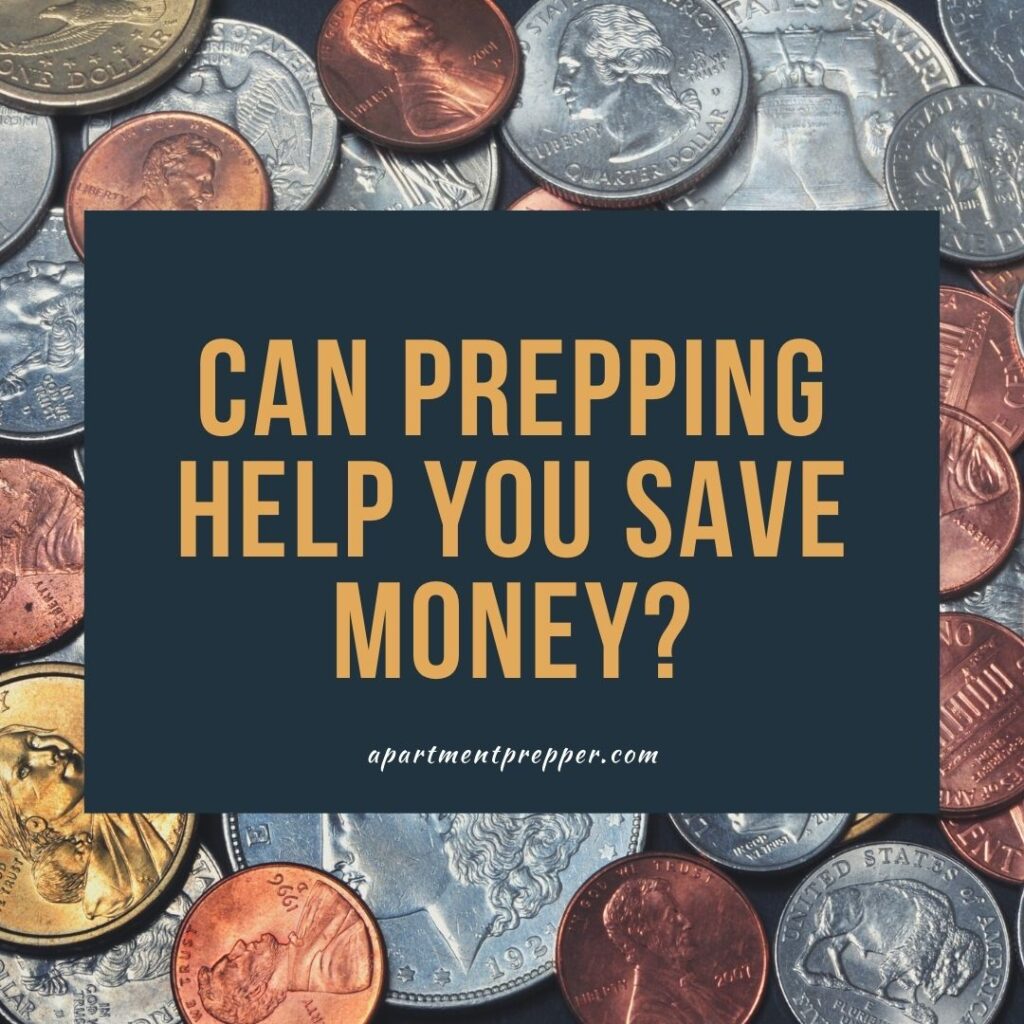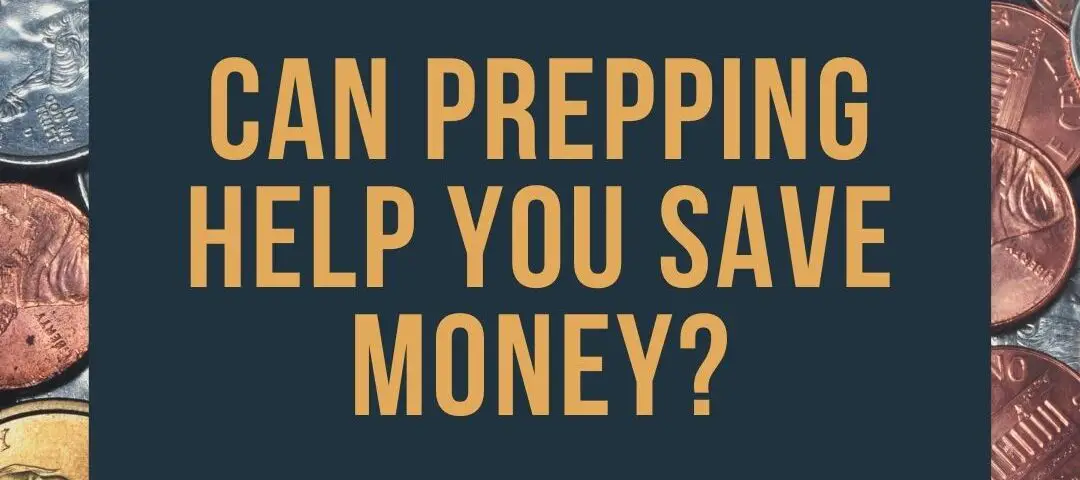This post is by Bernie Carr, apartmentprepper.com
Prepping may seem unrelated to personal finance, yet I found that these areas are intertwined. After all, you need a certain amount of money to buy supplies, and whatever you spend on will impact your monthly budget.
Doesn’t prepping cost money?
Yes, there is an initial cash outlay, but you can start with very little money. Set aside just $5 per shopping trip and you will be on your way to building a small stockpile. Just make sure you buy only food and supplies that your family already uses.
There are also many no-cost or low cost ways to prep. My e-book (free with Kindle Unlimited) shows how you can get prepared on a $50 a month budget.
Cover the basics
When you’re just getting started, make sure you cover everyday basic needs such as water, food, first aid, lighting, warmth, safety, communication. One of the first steps that I recommend for someone new to preparedness is to make a list of items you use daily from morning until night. Those are the items you’d want to stockpile.
Gear
Don’t go overboard with the latest and greatest gear. Look at online reviews before buying tools or equipment. For example, did you know there are flashlights that require just one battery?
Can prepping help you save money?
Your stockpile
If you stock up on items that your family uses such as canned food that everyone eats, toilet paper, laundry detergent, bleach, sugar, coffee etc., you will always have ingredients or supplies on hand and never have to run to the store at the last minute for something because you ran out.
Stock up on items while they are on sale and combine sales with coupons for maximum savings. Buying in bulk also helps you save money.
Save money on water
I quit buying bottled water after I got my Berkey water filter. It can remove lead and other heavy metals along with pesticides, VOCs, chemicals, bacteria and viruses. I bought a set of filters to use daily as I lived in an area that often had murky water coming out of the tap. I know I have saved hundreds of dollars in bottled water cost.
New skills
Learning new skills will empower you to make things that you previously only bought at the store, thereby saving you cash. If you know how to bake bread, make yogurt at home and grow some herbs, these are items you don’t have to buy.
Fitness
Getting in shape and losing weight are part of a good preparedness plan and will save you money as well. If you are overweight and out of shape, you will have trouble navigating an emergency, therefore it behooves you to get healthy. Being healthy saves you from spending money on doctor bills, prescriptions and lost time from work.
Your cash fund
Prepping involves setting aside a small amount of cash in case of emergency. If there is a power outage, credit and debit cards will not work. You should have enough cash to cover food and gas for at least a couple of days.
When you are ready to invest in gold and silver coins make sure you take ownership of these items in physical form, not just a certificate. Or, start collecting pre-1965 quarters and dimes which contain 90% silver.
Avoid debt
Don’t get into more debt buying preparedness items. Figure out what you can afford and stick to a plan. Even $5 a week will get you a good start, as long as you do it consistently.
The final word
The answer our original question, “Can prepping save you money?” is yes, absolutely. As long as you don’t go overboard on gear, prepping can help you save money in the long run.
Being frugal and learning to live on less are all great habits to have regardless of whether an emergency happens. Even if you never experience an emergency, your finances will be greatly improved if you adopt these habits.
We are an affiliate of Amazon.com, which means we received a small commission if you click through one of our Amazon links when you shop, at totally no cost to you. This helps keep the lights on at the blog. Thanks!
About the author:
Bernie Carr is the founder of Apartment Prepper. She has written several books including the best-selling Prepper’s Pocket Guide, Jake and Miller’s Big Adventure, The Penny-Pinching Prepper and How to Prepare for Most Emergencies on a $50 a Month Budget. Her work appears in sites such as the Allstate Blog and Clark.com, as well as print magazines such as Backwoods Survival Guide and Prepper Survival Guide. She has been featured in national publications such as Fox Business and Popular Mechanics. Learn more about Bernie here.



That is a great list, although I would put #7 first on the list. Get out of debt ASAP.
#5 on the list is a really good suggestion.
However, it should be remembered that in case of a power outage – especially a widespread outage – even cash “might” not be of much use. Very few gas stations and stores have emergency power back-up … therefore the gas pumps, cash registers, and product scanners simply won’t work.
IF POSSIBLE, I’d recommend doing some of your routine grocery shopping at a small local “mom-and-pop” store. In case of a power outage, the owners of the store MIGHT use a calculator and take cash when the registers and scanners don’t work …
Obviously, this will all depend on the owners and it would be a good idea to inquire as to their policy during a power outage before becoming a regular customer.
(This has happened to me.)
Hey Paul, That is a good idea. A small store will calculate pricing manually, while a large one will just close the registers. Thanks for the comment.
Preppers stock up on supplies when they are on sale. Those who do not prepare have to endure price gouging. Staying out of debt means you avoid paying interest on debt. Having too much debt also can hurt your credit rating which will limit the credit cards you will be qualified to own. A poor credit rating also can hurt your chances of promotion with your current employer or your success in a job search for your next employer.
Staying current on debt and paying them off is crucial to financial preparedness. Thanks for the comment Dan!